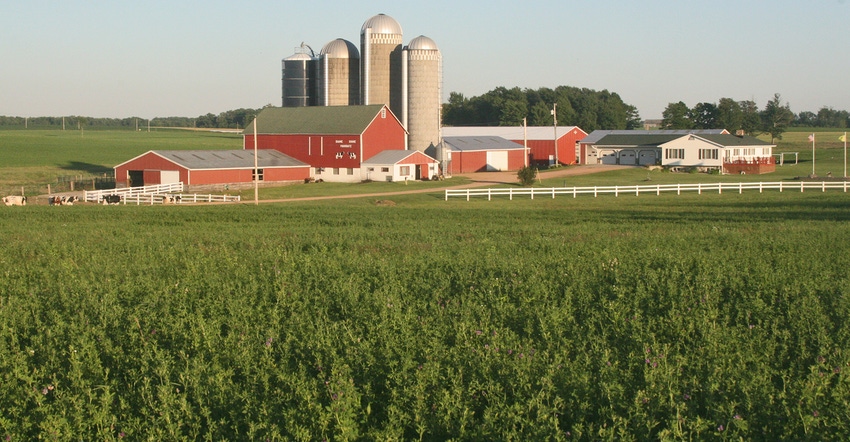March 14, 2017

There are many ways to transfer the family farm, as have been described in this space in the past, but there are also many ways not to transfer the family farm. In my experience, I have seen five common mistakes.
1. No will or trust. For example, after high school, son (or daughter) started working on the farm. As he reached his 30s, he asked his dad if he was ever going to transfer the farm to him. Dad promised he would, and maybe even indicated he had it “taken care of” in his will or trust. Maybe Dad and Mom meant to get things “taken care of,” but didn’t ever get around to it. They died, and everything was equally divided among all their kids, including the farm. So one son spent his entire adult life on the family farm working for a low wage, and in exchange, received an equal part of the farm as his siblings who left. It seems every farmer I talk to has heard of a story like this.
2. Rely solely on a will to transfer the farm. Wanting to avoid the first mistake described, let’s say Mom and Dad see an attorney about their estate plan. The attorney recommends and does a will for each of them. The wills provide that when the first spouse dies, everything goes to the living spouse, and when that spouse dies, the farm goes to the kids still working it, and the nonfarm kids get the rest of their assets (or some variation).
There are two issues with this. First, if the parents live until they are 100, a son (or daughter) might be over 70 by the time he inherits the farm, or the farm may have to be sold to pay for Mom's and Dad’s nursing home care. Second, a will does not avoid probate. Probate is a very costly and public court procedure that could have been easily avoided by a competent estate planning attorney.
3. Gift all at once. Maybe Mom and Dad have heard that if they gift all of their assets to their kids, wait five years, and then need to go to the nursing home, the state of Wisconsin will pay for their nursing home stay. While generally speaking this may be true, what are Mom and Dad going to live on for the rest of their lives? What if their one son dies, and his estate plan leaves everything he owns to his wife? Also, by gifting, the son loses the advantage of a step-up in basis, which can often result in tremendous tax savings.
4. Sell farm for full fair market value. There are times, especially with smaller farms, when Mom and Dad will need to sell the farm for full market value to their son in order to maintain a stream of income for their living expenses for the rest of their lives. In those cases, Mom and Dad have no choice but to sell the farm for full fair market value.
However, there are times when clients have told me that no one ever gave them anything and they made it, so they see no reason why they should give a break to any of their kids. Of course, the challenge becomes whether the son can cash-flow the purchase of the farm, along with the farm’s expenses and his living expenses.
I think everyone would agree that it is much more difficult to transfer the farm at full fair market value than it was a generation or two ago. The milk check just doesn’t go as far as it used to.
5. Transfer ownership to nonfarm kids. If a farm is primarily owned by a corporation, for example, I’ve seen parents transfer some shares of the corporation to the nonfarm kids. Inevitably, the nonfarm kids eventually want money for their shares. If the amount is reasonable and affordable, that often is not a problem. If the value of the shares is extensive, and if the nonfarm kids want to make things difficult, I have seen it put an end to the farm because the on-farm kids just can’t afford it.
If you have started down one of these paths, it is usually not too late to correct it. Transferring a family farm takes work and sacrifice.
Halbach is a partner in the ag law firm of Twohig, Rietbrock, Schneider and Halbach S.C. Call Halbach at 920-849-4999.
About the Author(s)
You May Also Like






